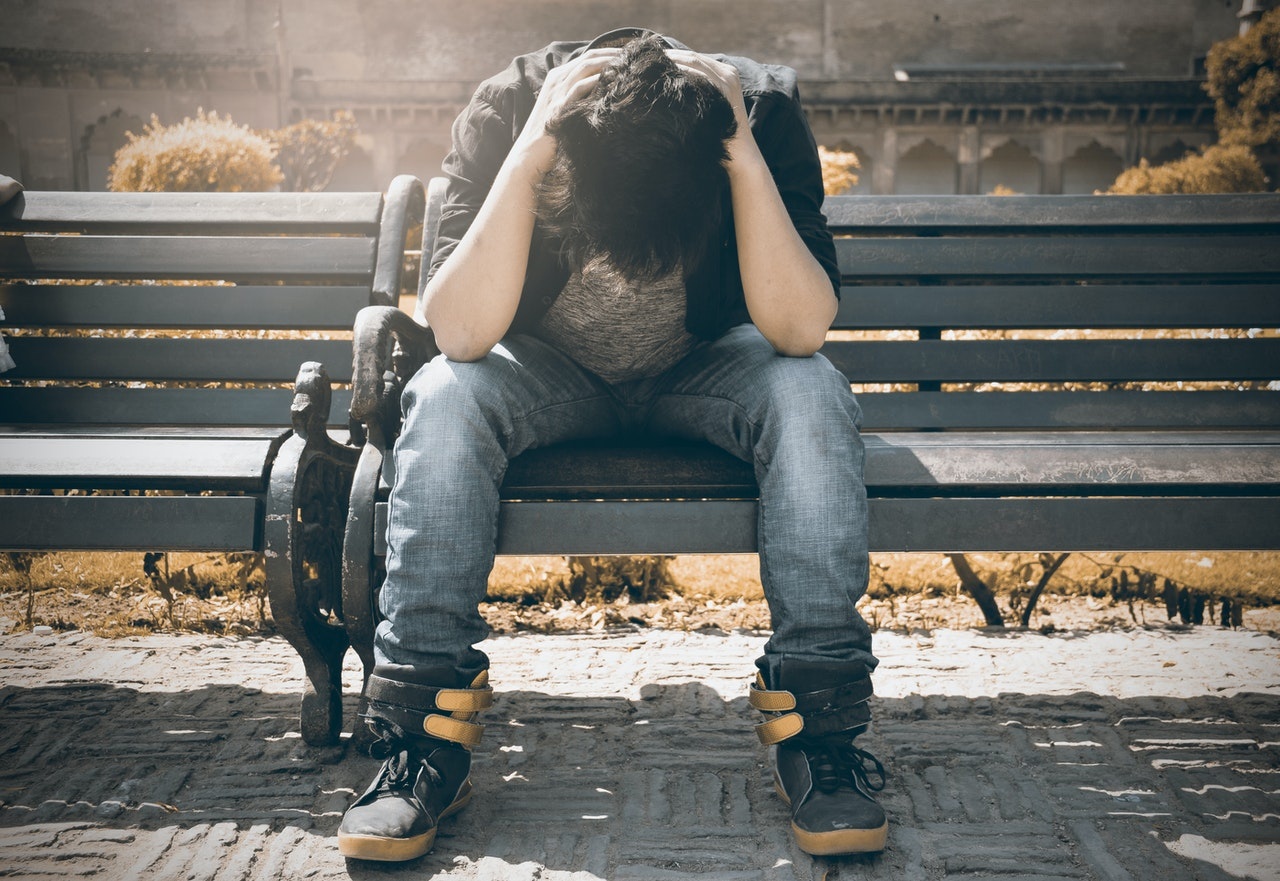Addiction and Major Depressive Disorders


Learn about major depressive disorders, addiction, and how recovery treatment facilities can treat both effectively. Call The Forge today!
Depressive disorders are serious mental illnesses that affect individuals throughout their lives. They influence things such as emotions and cognitive functionality. These impacts on one’s life can disrupt appetite, enjoyment, sleeping habits, rational thinking, and the ability to cope with challenging situations.
Depressive disorder, like other mental disorders, can contribute to substance abuse as well.
Having a depressive disorder does not go away or get easier over time. Most people will feel sadness in their life at one point or another. However, when depression sets in, even without understanding why the risk factors of high stress and trauma can lead to an increased risk of developing a major depressive disorder, it can be devastating.
In addition, those that struggle with major depressive disorders have significantly higher risks of developing a co-occurring addiction with the major depressive disorder.
Major Depressive Disorders
Depressive disorders have various factors that undermine the different types of depression. A few major depressive disorders include psychotic depression, seasonal affective disorder, melancholic depression, and postpartum depression. Additionally, individuals with serious mental illnesses such as PTSD can also develop major depressive disorders.
These depressive disorders can vary from person to person. However, some symptoms can include feelings of worthlessness, anxiety, insomnia, trouble concentrating, digestive issues, memory retention, fatigue, a complete sense of hopelessness and emptiness, lack of interest, and more. Having a major depressive disorder is a difficult challenge and can make an individual suffer in silence.
Connections Between a Co-Occurring Health Disorder and Addiction
Depression is a significant challenge and burden for any individual to undergo. It disables the individual to continue a healthy lifestyle and maintain day-to-day activities. The connections between co-occurring mental health disorders and addiction can influence dependency on various substances, leading to substance abuse.
Some individuals find themselves challenged with increased risk of altruistic punishment, rejection, avoidance, diminished cooperation, self-perception, hopelessness, a lack of energy, and can lose complete interest in life altogether. Having a depressive disorder is not a sign of an individual’s weakness in their character, but rather a link between the changes in their brain biochemistry. Major depressive disorders can make individuals feel inadequate and are just as serious as a medical health concern like diabetes.
One study from NCBI stated that physical limitations and depression symptoms could intervene with pain and day-to-day experiences. Those with major depressive disorders feel impaired when handling and dealing with daily activities, and they may find means to cope with depression through addiction.
The limitations between health disorders and addiction can vary from individual to individual, and not every individual with depression will need accommodations to help find a solution. However, those who suffer from severe major depressive disorders may be more at risk of suicidal ideation or other harmful behaviors to help them cope.
What Addiction Recovery Treatment Facilities Are Doing to Help Improve the Odds and Who to Contact
Addiction centers want to help improve the odds of every individual who suffers from a major depressive disorder. As a result, treatment options are different for each individual and are tailored to their unique situation.
How the addiction and depressive disorder are addressed depends on the severity of symptoms and the addiction. Therefore, the various treatment options can include medication-assisted treatment, psychotherapy, self-care, group therapy, and more. Implementing healthy habits and professional and clinical treatment can help individuals who struggle with major depressive disorders and addiction.
There are warning signs to recognize triggers. Treatment options are designed to help motivate and build a stronger and more positive lifestyle. When an individual is diagnosed with a major depressive disorder, treatment options are adjusted to fit each situation precisely.
Individuals who choose to take their first step towards finding the correct type of clinical and professional help are able to target specific symptoms in their biochemistry. Additionally, they can get a professional diagnosis with addiction recovery treatment to align the particular methods to target the major depressive disorder and addiction. Individuals who suffer from addiction and major depressive disorders may undergo:
Cognitive behavioral therapy
Dialectical behavioral therapy
Dual diagnosis treatment
Mindfulness meditation
Psychoanalysis
Psychodynamic therapy
Group therapy
Medication-assisted treatment
Those of us at The Forge want to help individuals recover when they struggle with major depressive disorders and addiction. We know various limitations and dynastic frameworks of depression disorders that can impact the environmental and psychological mechanisms on how one may perceive and cope with life’s challenges.
Looking For Treatment For Addiction and Mental Disorders Can Be Overwhelming
The search for suitable treatment options that are right for someone who struggles with major depressive disorders and addiction can seem overwhelming at first. Treatment options may seem difficult to navigate, but those who want to save time and effort can reach out to a professional who understands major depressive disorder limitations and addiction to address the treatment options without delays.
The Forge Recovery Center provides opportunities for prevention, therapy, and translational emphasis on integrating research and clinical treatment options for those struggling.
If you or someone you know struggles with addiction or a major depressive disorder and wants to have an integrative approach, reach The Forge today.
Are You Struggling with Mental Health or Addiction?
We Can Help. Call Us Now!
CALL: 877-839-1772




